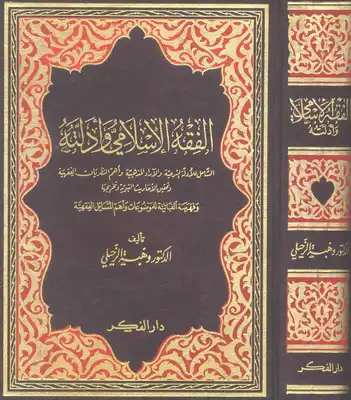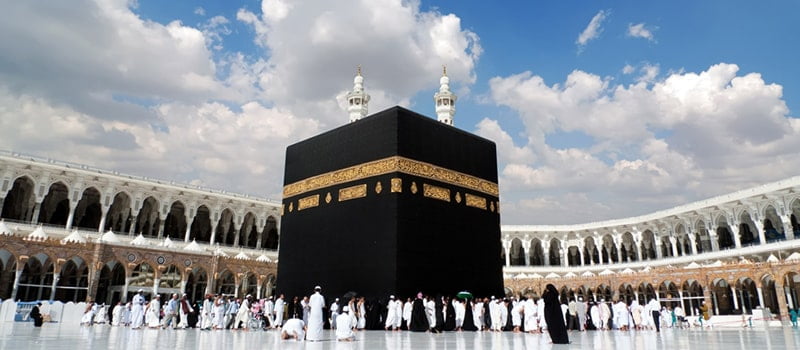
20 February 2025
 The Biography of Omar Ibn Al-Khattab
The Biography of Omar Ibn Al-Khattab

Omar Ibn Al-Khattab, also known as Umar, was one of the most prominent and influential figures in Islamic history. His leadership and vision played a pivotal role in the early expansion of the Islamic empire. In this article, we will explore his early life, conversion to Islam, his role as a companion of Prophet Muhammad (PBUH), and his leadership as the second caliph of the Rashidun Caliphate.
Early Life and Background
Birth and Early Years
Omar Ibn Al-Khattab was born in 584 CE in the city of Mecca, in the Arabian Peninsula. He belonged to the Adi clan of the Quraysh tribe, a powerful and respected tribe in Mecca. His father, Al-Khattab, was known for his strength and leadership qualities. Omar’s early life was marked by physical strength, courage, and a deep connection with his tribal roots.
Pre-Islamic Life
Before converting to Islam, Omar was known as a fierce and staunch opponent of the Islamic faith. He was a skilled horseman, warrior, and had a reputation for being a formidable individual. During his youth, he was involved in several business dealings and traveled extensively. Omar’s life in Mecca was largely defined by his commitment to the traditional ways of his tribe and his strong opposition to the new religion of Islam, which was gaining followers.
Conversion to Islam
The Turning Point
Omar’s conversion to Islam is one of the most significant moments in Islamic history. It is said that Omar was initially hostile towards the teachings of Prophet Muhammad (PBUH). However, his heart and mind were eventually opened to the message of Islam after an incident that would forever change the course of his life.
The story goes that Omar was on his way to kill Prophet Muhammad (PBUH) when he encountered a Muslim who advised him to go and listen to the teachings of the Prophet. His conversion occurred after he heard the Qur’anic verses being recited by his sister and brother-in-law. Struck by the profound beauty and truth in the words, Omar decided to embrace Islam in 616 CE.
Impact of His Conversion
Omar’s conversion was a turning point not just for him personally but for the Muslim community as a whole. His strength and position in Meccan society gave credibility to Islam, and his acceptance of the faith inspired others to join. His conversion also marked a shift in the balance of power in Mecca, as he became one of the strongest defenders of Islam.
His Role as a Companion of the Prophet Muhammad (PBUH)
Close Relationship with the Prophet Muhammad (PBUH)
Omar Ibn Al-Khattab was one of the closest companions of Prophet Muhammad (PBUH). He was known for his deep respect and admiration for the Prophet, as well as his commitment to the teachings of Islam. Omar was known to frequently seek the guidance of the Prophet, and his unwavering faith in Islam made him one of the most trusted companions.
Contributions to the Islamic State
During the lifetime of the Prophet Muhammad (PBUH), Omar played a significant role in several key events, including participating in important battles such as the Battle of Badr, Uhud, and the Battle of the Trench. He also contributed to the drafting of treaties and agreements between the Muslims and other tribes. His advice and leadership skills were invaluable to the growth and strength of the early Muslim community.
Known for His Justice and Wisdom
Omar’s character was marked by a deep sense of justice and fairness. He was known for his straightforwardness and honesty, which earned him the title “Al-Faruq” (the one who distinguishes between right and wrong). His leadership style was grounded in his commitment to upholding the teachings of Islam, ensuring that justice prevailed in all matters.
Leadership as the Second Caliph
Becoming Caliph
After the death of Abu Bakr, the first caliph, Omar was chosen as the second caliph of the Rashidun Caliphate in 634 CE. His appointment came at a critical time, as the Muslim empire was expanding rapidly, and the need for strong leadership was paramount. Omar’s leadership was instrumental in the success of the Islamic empire during this time.
Major Reforms and Achievements
Omar’s tenure as caliph was marked by numerous reforms and achievements that laid the foundation for the expansion of the Islamic state. Some of the most notable accomplishments of his leadership include:
1. Military Expansion
Under Omar’s leadership, the Islamic empire expanded to unprecedented levels. He oversaw the conquest of vast territories, including the Byzantine Empire’s eastern provinces (Syria, Palestine, and Egypt) and the Sassanian Empire’s heartland (Persia). The success of these military campaigns was due in part to Omar’s strategic leadership and the loyalty of his forces.
2. Administrative Reforms
Omar was a visionary leader who recognized the need for a solid administrative framework to manage the rapidly growing Islamic state. He established the diwan (state treasury) and introduced policies to ensure the fair distribution of wealth, resources, and military pay.
3. Social Reforms
Omar’s rule saw significant social reforms, including the establishment of welfare programs for the poor and orphans. He introduced a pension system for the elderly and enacted laws to protect the rights of women, particularly in matters of inheritance.
Legal and Judicial Contributions
One of Omar’s most important contributions to the Islamic state was his development of a legal system based on Islamic principles. He played a key role in the compilation of the Qur’an and established judicial practices that were based on fairness and justice. His decisions were guided by the principles of Sharia law, and he was known for his ability to make difficult decisions with wisdom and impartiality.
Handling Dissent and Ensuring Unity
Omar faced several challenges during his reign, including dissent from within the Muslim community and external threats from the Byzantine and Persian empires. However, he was able to maintain unity and stability through his firm leadership and reliance on consultation (Shura) with his companions. His approach to governance emphasized the importance of collective decision-making while ensuring that justice and the welfare of the people were prioritized.
His Legacy
A Model of Leadership
Omar Ibn Al-Khattab’s legacy as a leader is remembered for his integrity, wisdom, and tireless dedication to the welfare of the Muslim community. His leadership style, which combined strict adherence to Islamic principles with a pragmatic approach to governance, left a lasting impact on the Islamic world.
His contributions to the expansion of the Islamic state, the establishment of a just legal system, and his commitment to social justice continue to be studied and admired by Muslims around the world.
The “Faruq” Title
Omar’s epithet, “Al-Faruq” (the one who distinguishes between right and wrong), highlights his unparalleled sense of justice. His ability to make tough decisions, often in the face of great opposition, is one of the defining features of his leadership. The title reflects his deep understanding of what was morally right and wrong and his commitment to acting accordingly.
His Death and Succession
Omar Ibn Al-Khattab’s life came to a tragic end in 644 CE when he was assassinated by a Persian slave named Abu Lulu. Despite the circumstances of his death, Omar’s impact on the Islamic world remained profound. He was succeeded by Uthman Ibn Affan, who continued his policies of expansion and governance.
Conclusion
Omar Ibn Al-Khattab remains one of the most revered and influential figures in Islamic history. His early life, conversion to Islam, and leadership as the second caliph shaped the future of the Muslim world. His contributions to military, administrative, social, and legal reforms played a key role in the rapid expansion of the Islamic empire. More than just a ruler, Omar was a man of unwavering faith, profound wisdom, and a deep commitment to justice. His legacy continues to inspire generations of Muslims, and his life serves as an enduring example of leadership grounded in moral clarity and divine guidance.
This article provides a comprehensive look at Omar Ibn Al-Khattab’s life, from his early years to his significant contributions as a leader, and examines the lasting impact of his leadership on the Islamic world.
Search
Categories
Tags
Recent Posts

The Role of Women in Islam: An In-Depth Perspective
The role of women in...

What are the Key Principles of Islam?
Islam is a major world...

Islamic Jurisprudence: An In-Depth Understanding of Fiqh
Islamic jurisprudence, or "Fiqh," is...

The Most Important Hadiths of Prophet Muhammad (PBUH)
The teachings of Prophet Muhammad...

The Five Pillars of Islam
The Five Pillars of Islam...
